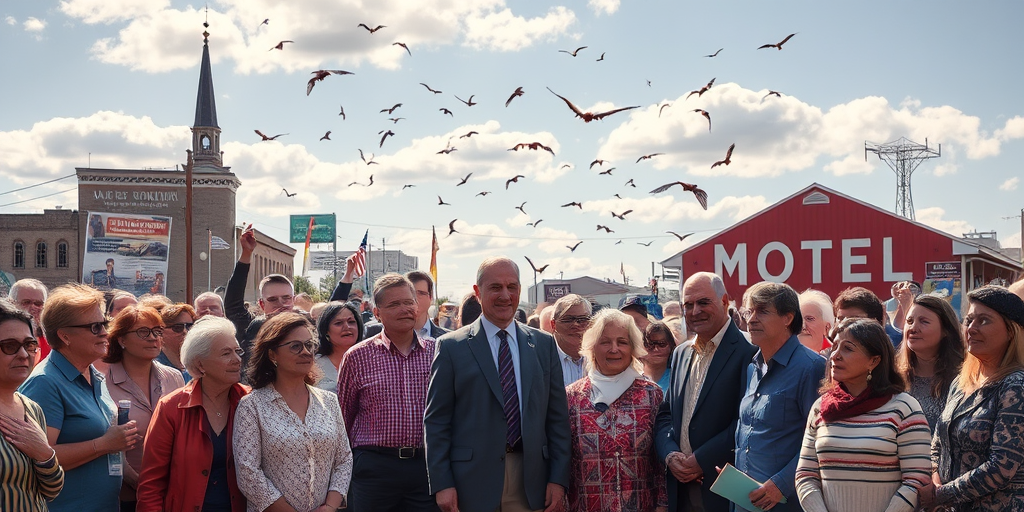New Developments in Digital Equity: Navigating BEAD Non-Deployment Funds
This week, discussions on digital equity and broadband expansion continue to take center stage, with a specific focus on the Broadband Equity, Access, and Deployment (BEAD) program’s non-deployment funds. Stakeholders across the nation are pressing for more clarity from the National Telecommunications and Information Administration (NTIA) regarding the permissible activities for these funds. Initially, Congress designed these funds with flexibility to foster broadband adoption, yet states remain uncertain about their application.
The Complexity of BEAD Non-Deployment Funds
The intent of BEAD’s non-deployment funds is to bridge the digital divide by supporting activities beyond just infrastructure expansion, such as educational outreach and broadband affordability initiatives. However, the lack of clear guidelines from the NTIA has left states in limbo about how best to utilize these resources.
Speaking at a recent conference, Arielle Roth, Assistant Secretary at NTIA, expressed that while no final decisions have been made, the agency is investigating innovative uses of the funds that align with the program’s goals. “We are exploring how these funds can effectively advance digital equity nationwide,” Roth stated.
Criticism arose regarding NTIA’s indication that states using BEAD funds must preempt existing state broadband affordability laws. Experts, like Stephanie Weiner from Georgetown Law, argue there is no legal foundation for such preemption, spotlighting a potential conflict between federal directives and state autonomy.
Arkansas: Tech Training Initiative with Google
Amid these national discussions, states like Arkansas are proactively embracing digital equity initiatives. In collaboration with Google, the state has launched the “Grow with Google” program, offering free technical training to its residents. Aimed at improving workforce readiness, this initiative covers areas like cybersecurity, data analytics, and IT support.
Arkansas Secretary of Commerce Hugh McDonald emphasized the program’s local impact, stating, “This partnership equips Arkansans with valuable digital skills, making them desirable candidates in our evolving job market.”
Broadband Recovery in North Carolina
In response to Hurricane Helene, North Carolina introduced a $50 million Broadband Recovery Program. Governed by the state’s Department of Information Technology, the initiative focuses on repairing and restoring internet infrastructure, crucial for ensuring connectivity during natural disasters. These efforts underscore the state’s commitment to digital resilience, ensuring reliable access to internet services for all residents.
ReConnecting Rural America Act: A Legislative Push
On the legislative front, the reintroduction of the ReConnecting Rural America Act marks a significant step in expanding rural broadband access. This bipartisan effort aims to enhance the USDA’s ReConnect Loan and Grant Program, facilitating high-speed internet expansion in underserved rural areas. The act proposes setting build-out speeds and enabling grant-loan combinations, vital for regions struggling with connectivity.
Senator Roger Marshall, a proponent of the act, echoed a historical perspective by comparing this initiative to the United States’ 1950s highway investments. “Expanding rural broadband is an investment in our future,” he asserted.
Local Broadband Expansion Efforts
Local efforts across the nation highlight community interest in closing the digital divide. In San Antonio, a collaboration with AT&T has brought fiber internet to 20,000 new locations, with additional support in providing laptops to low-income residents. Similar projects in Santa Cruz and Washington signify continued efforts to enhance connectivity and serve local residents.
Addressing Workforce Challenges
Despite these gains, the shrinking telecommunications workforce presents a significant barrier to meeting BEAD project requirements. The Pew Charitable Trusts’ recent report advocates for better data utilization and competitive wage strategies to fortify workforce capacity. These recommendations are critical as the industry strives to keep pace with rising demand and ensure the success of broadband expansion projects.
Digital Literacy in Texas
In Texas’ Brownsville Public Library System, digital literacy classes have become a pillar of community engagement. Focusing on skills such as online navigation and LinkedIn Learning, these classes are part of broader efforts to enhance local internet access and equip residents with necessary digital skills. As City CIO Jorge Cardenas points out, “There’s no such thing as a smart city without connection.”
The Path Forward
As debates around BEAD’s non-deployment funds and innovative state initiatives unfold, the drive for digital equity continues to be a pivotal issue. The outcome of these conversations will shape how communities across the country realize the goal of universal connectivity. For residents and stakeholders alike, the potential for impactful change remains a focal point, with the promise of a more connected, digitally inclusive future.







